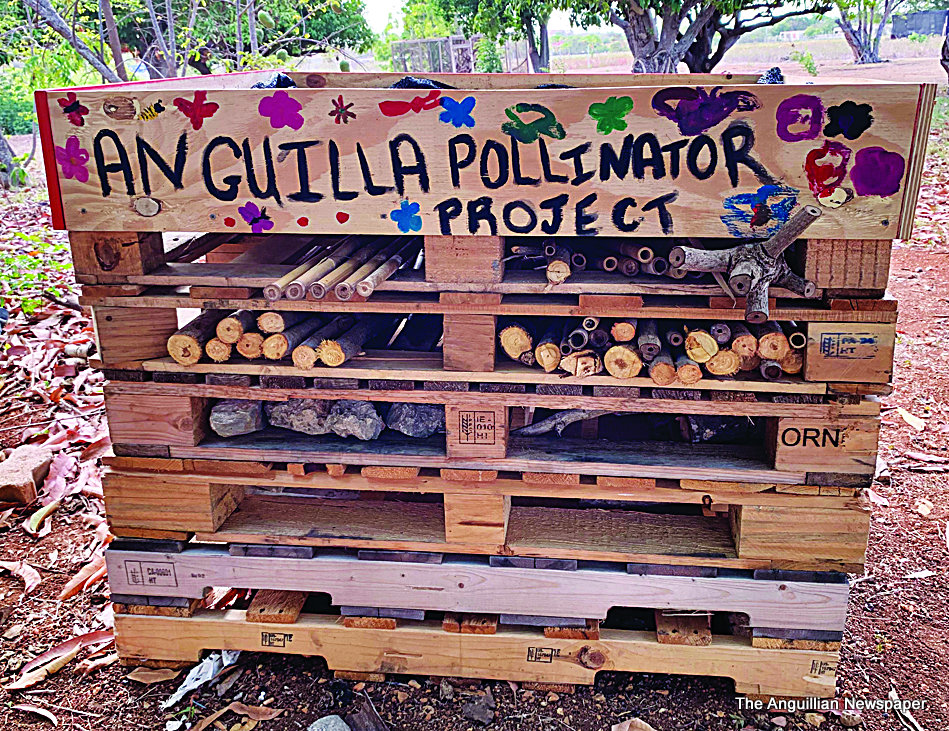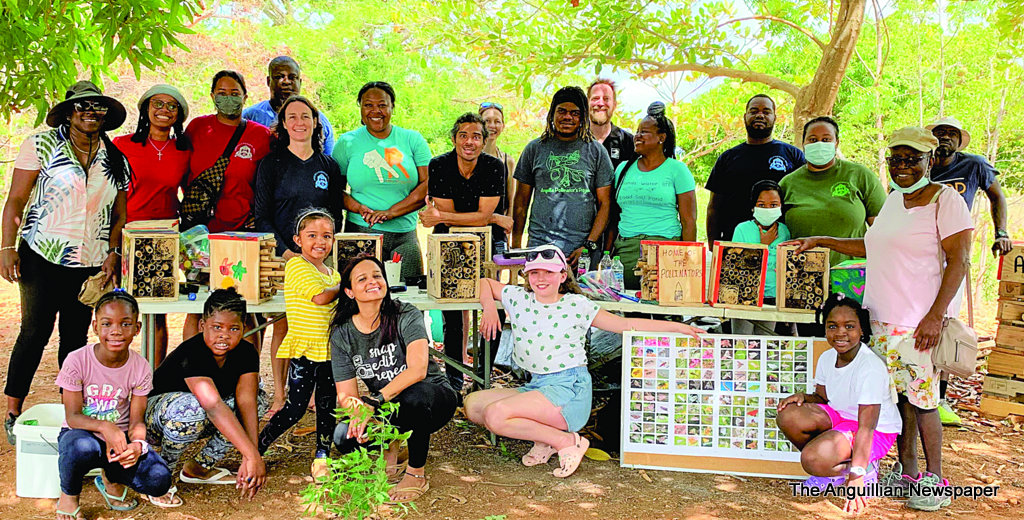June has been a busy month for the Anguilla National Trust (ANT), said the Executive Director Farah Mukhida. Two major undertakings included the start of the development and eventual implementation of a national pesticide policy, and the start of building a National Pollinator Strategy.
The ANT hosted Roland Gauvian of the Alderney Wildlife Trust headquartered in the Channel Islands – who arrived on Anguilla on May 29 for a two-week stay to assist with pollinator conservation on the island, including the development of a pesticide policy. Meetings with key stakeholders from the Farmers Association, the Agricultural Department, Environment and Health, Education, Gender Affairs, the Anguilla Beautification Club, as well as representatives from the hotels and major resorts, facilitated the exchange of information which will be used to shape and formulate policy. Pesticide policy development will begin in July and, when completed, and coordinated by the stakeholders, will be forwarded to the Executive Council for approval and adoption.
The pesticide policy is part of the ANT’s and Government of Anguilla’s 3-year Pollinators Project, jointly funded through the UK Darwin Plus and the EU BEST 2.0+ programmes, which provide financing for biodiversity conservation. The project includes creating and strengthening existing policies and legislation, training and supporting bee-keepers, preserving and re-cultivating key habitat areas with plants and fruit trees which attract pollinators, and education outreach with the public. Several recent events to teach the art of building pollinator boxes, and taking walks to locate bat and moth caves, have attracted scores of adults and children.
Jenny Daltry, Caribbean Alliance Director of the Re:wild organisation visited the ANT in early June to assist with the development of the National Pollinator Strategy. Re:wild, launched in 2021, combines more than three decades of world-wide conservation expertise, partnerships and platforms to bring attention to reversing the plight of threatened species. The ANT is excited with the level of local support, interest and participation being generated in these initiatives.











